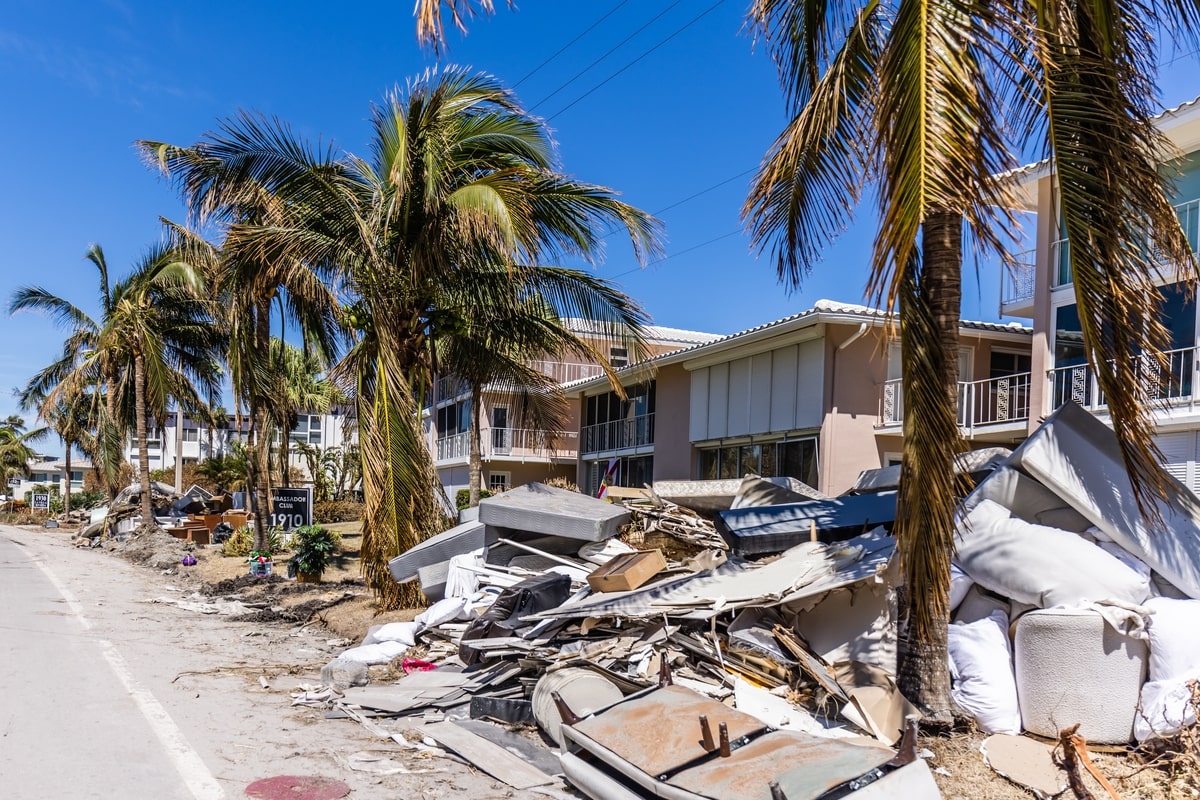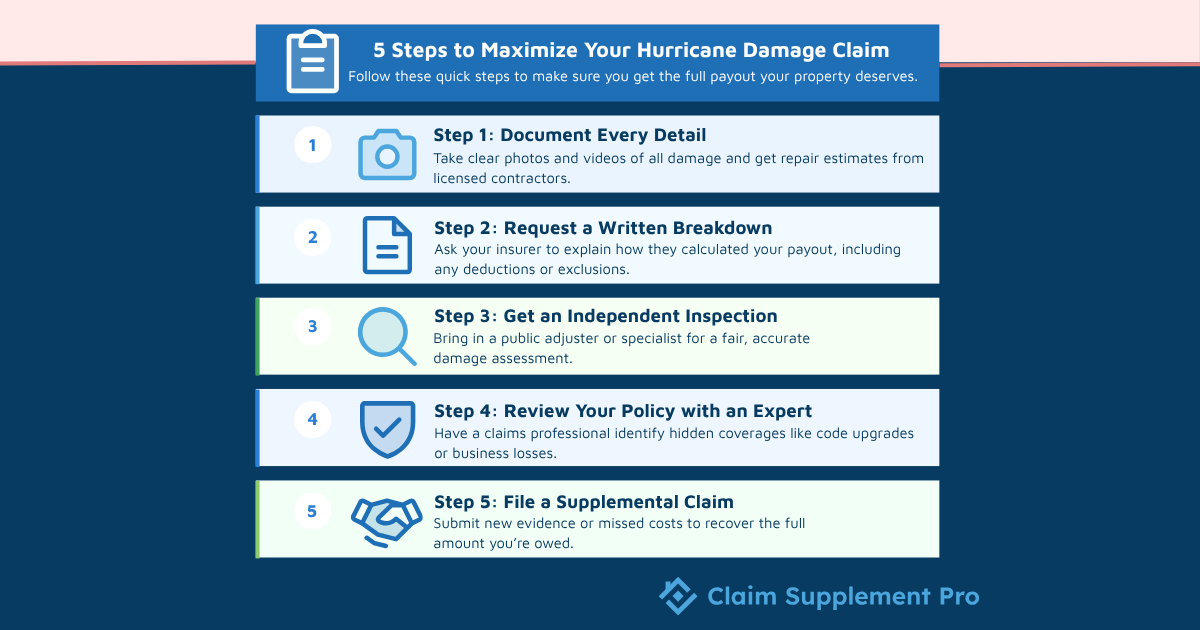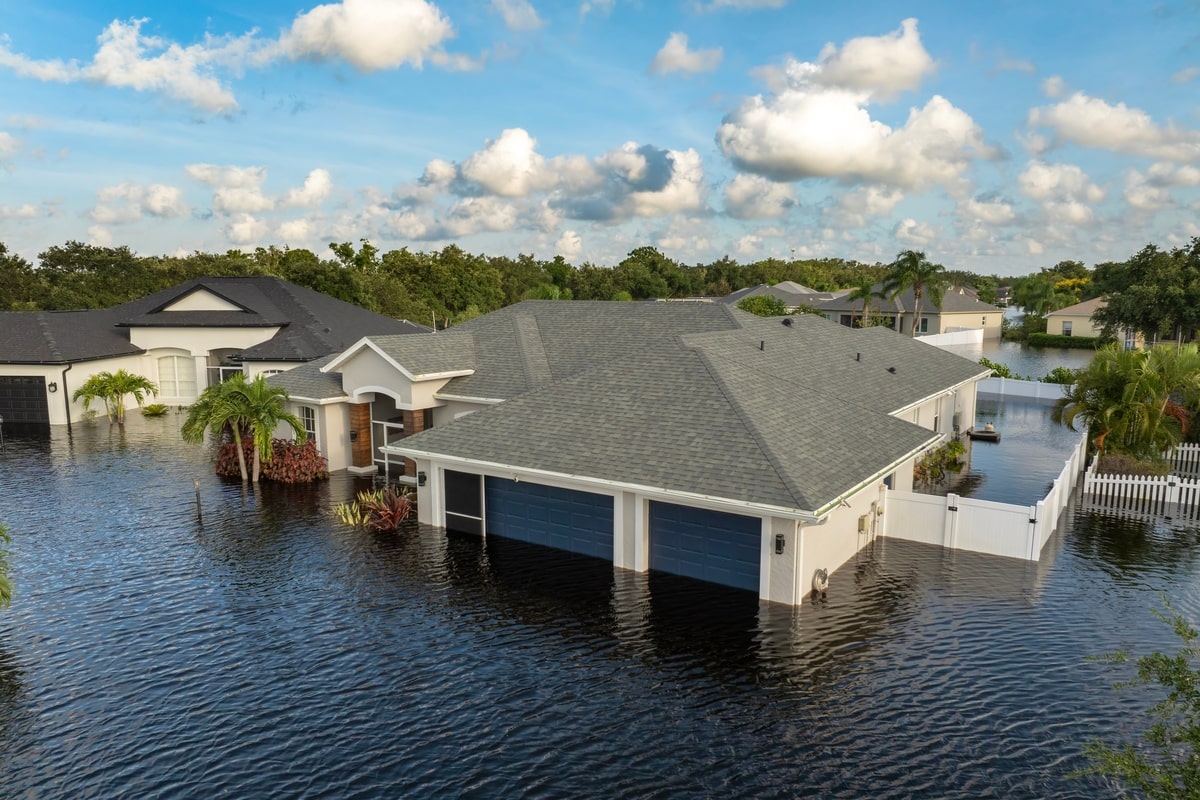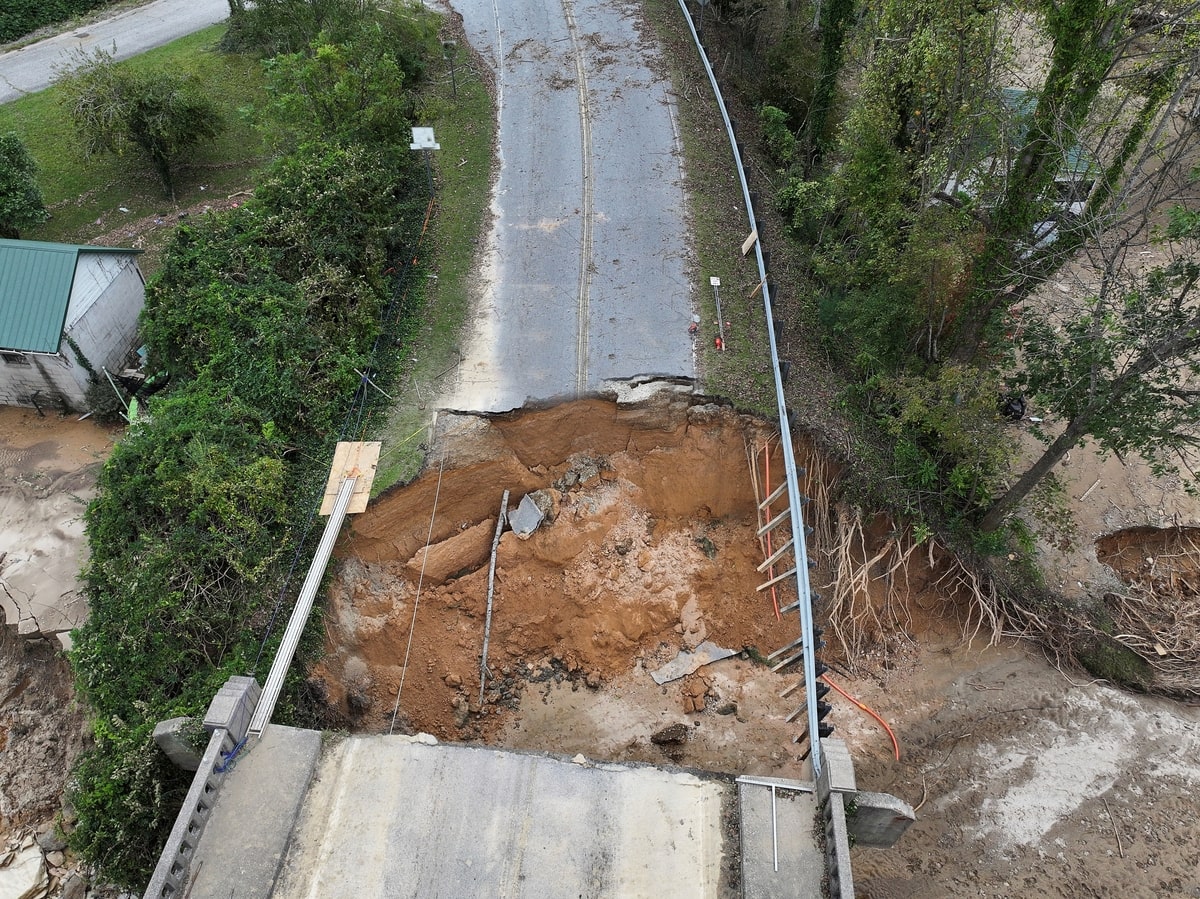Underpaid Hurricane Damage Claim? Here’s How to Maximize Recovery

Table of Contents
- Understanding Underpaid Hurricane Damage Insurance Claims
- Common Reasons Insurance Companies Underpay Hurricane Damage Claims
- Step-by-Step Process to Maximize Your Hurricane Damage Claim Recovery
- Special Considerations for Homeowners with Underpaid Hurricane Damage Claims
- Special Considerations for Businesses with Underpaid Hurricane Damage Claims
- How a Claim Supplement Expert Helps Increase Payouts
- Legal Options If Your Hurricane Damage Claim Remains Underpaid
- Avoiding Mistakes That Could Hurt Your Claim
- FAQs About Underpaid Hurricane Damage Claims
- Don’t Settle for Less Than You Deserve
As if a hurricane tearing through your property isn’t disastrous enough, filing a claim that should enable you to cover the full cost of repairs is, unfortunately, often a whole new disaster in itself. An insurance settlement offer can come in thousands below what’s needed to rebuild, leaving you with triple the damage: property damage decorated with financial and emotional costs.
But worry not—this doesn’t have to happen. You don’t have to get blindsided by underpayments, low insurance estimates, missed damages, or policy loopholes. An underpaid hurricane damage insurance claim is a scenario you can avoid through actionable steps for maximizing your recovery or by working with experts who can guide you on this journey. Whether you own a home or a business, this guide will equip you with everything you need to know to get the payment you deserve.
Understanding Underpaid Hurricane Damage Insurance Claims
company’s payout falls short of covering the true cost of repairs or replacements. In other words, the check you receive doesn’t reflect what you actually need to restore your property to its pre-storm condition.
For homeowners, this could mean structural issues left unaddressed, water damage inside the home that only gets partially covered, or roofing repairs valued far below contractor estimates. For business owners, underpayment often shows up in the form of lost inventory that’s underestimated, overlooked damage to equipment or property, or insufficient compensation for business interruption that leaves you struggling to keep operations afloat.
Unfortunately, this problem is extremely common after major storms. When a hurricane strikes, thousands of claims flood in at once, forcing insurance companies to move quickly. With limited adjusters on hand, inspections may be rushed, damages missed, or estimates based on generic cost assumptions rather than your property’s actual needs.
Add to that the usual complexity of insurance policies filled with fine print, exclusions, and technical terms, and it’s easy to see why many policyholders end up with payouts that don’t match the reality of their losses.
Common Reasons Insurance Companies Underpay Hurricane Damage Claims
You can imagine how frustrating it feels to file a claim expecting your insurance company to help you rebuild, only to realize the payout doesn’t even scratch the surface of your actual costs. Unfortunately, underpayment isn’t usually the result of one single issue, but a mix of incomplete inspections, complicated policy language, and overlooked losses. Understanding these common reasons can help you recognize when your claim may have been undervalued and take the right steps to challenge it.
Incomplete or Rushed Damage Inspections
After a hurricane, adjusters may be juggling dozens of inspections per day. This can easily lead to hidden or secondary damage being missed, like roof decking compromised beneath shingles, damaged electrical systems, or interior mold that shows up days or weeks later. These ‘invisible’ problems can end up costing you thousands if they’re not properly documented and included in the initial claim.
Policy Language and Exclusions
Insurance policies can be packed with fine print, and hurricanes often trigger the toughest clauses. Some policies may carry higher deductibles for wind damage, while exclusions for flooding, certain roof types, or older structures can drastically reduce your payout. Coverage caps on specific categories of damage may also limit what you can actually recover, even if your losses are much higher.
Depreciation Deadlines
The difference between Actual Cash Value (ACV) and Replacement Cost Value (RCV) is another common source of underpayment. ACV deducts depreciation, meaning you only get a partial payout upfront. To recover the full RCV, you usually have to make repairs within a set timeframe and submit proof of costs. Missing the deadline means you could lose access to thousands in additional compensation.
Business Interruption & Additional Expenses Overlooked
When it comes to underpaid hurricane damage claims for business owners, the losses don’t stop at physical property damage. Insurance companies often undervalue or ignore the costs of business interruption, which include lost revenue, relocation expenses, and even payroll obligations while operations are paused. If these aren’t thoroughly documented or properly presented, insurers may minimize their importance, leaving businesses struggling to stay afloat during recovery.
Step-by-Step Process to Maximize Your Hurricane Damage Claim Recovery
Don’t let the hurricane swallow your optimism; you are not stuck with the initial payout. Underpaid hurricane damage insurance claim settlements can be challenged, reassessed, and even supplemented, as long as you know the right steps to take.
The biggest challenge, but also the most important one, is to stay organized in the middle of the chaos. Proper documentation and the right experts can join forces to significantly increase your chances of securing your deserved compensation.

Step 1 – Gather and Organize All Damage Evidence Immediately
The more proof you have, the stronger your claim. Take very detailed photos and videos of all visible damage, both inside and outside your property. For homeowners, this might include roof leaks, water stains, or structural cracks. For business owners, document inventory loss and damaged equipment. Whenever possible, obtain written repair estimates from licensed contractors to back up your evidence.
Step 2 – Request a Detailed Written Explanation from the Insurer
Don’t accept a vague denial or partial payout. Ask your insurance company for a written breakdown of how they calculated the settlement. This will reveal deductions, depreciation applied, and any exclusions that affected the payout, giving you a clearer roadmap for addressing it.
Step 3 – Get an Independent Damage Assessment
Independent experts such as public adjusters, engineers, or specialized contractors can provide a fair and thorough assessment of your property’s true repair costs.
Step 4 – Review Your Policy with a Claims Expert
Insurance policies are notoriously complex. A claims expert can help you identify coverage you may not even realize you have, such as mold remediation, code upgrades, or business interruption protection.
Step 5 – File a Supplemental Claim
If your initial payout doesn’t cover the actual costs of repairs, you can file a supplemental claim. This process allows you to present new evidence, additional repair estimates, or overlooked damages to your insurer.
Insurance claim supplement services can help manage this process, so your claim is properly documented and negotiated for a higher payout. For many homeowners and businesses, this is the step that makes the difference between struggling with debt and fully recovering from hurricane damage.
Special Considerations for Homeowners with Underpaid Hurricane Damage Claims
It may seem like hurricanes pose a greater financial threat to businesses, but when it’s your home that’s devastated, the impact hits much closer to the heart.
Beyond the physical damage, it disrupts your daily life, comfort, and financial stability. And when you end up with an underpaid hurricane damage claim for home due to hidden expenses or overlooked coverages, the burden can quickly overwhelm an entire family. That’s why it’s crucial to address it properly from the very start.

Structural Repairs & Code Upgrades
Storm damage to older homes often requires more than just replacing what was lost. Local building codes may mandate upgrades to roofing, electrical systems, or plumbing—expenses insurers don’t always include in their initial estimate. Because these code-driven repairs can quickly raise costs, an underpaid claim could leave you covering thousands out of pocket unless you advocate for proper reimbursement.
Personal Property & Contents Coverage
Insurers may easily undervalue your furniture, appliances, electronics, and personal belongings; it is you who knows how much your stuff is worth and who needs to point that out. If you don’t, adjusters may apply heavy depreciation or overlook entire categories of loss, which results in payouts that won’t cover your actual costs of replacing household items. It is thus important to properly document your possessions and provide receipts or comparable replacement values to avoid these shortfalls.
Temporary Living Expenses
Just as a business may have to be paused or moved due to hurricane damage, so can your home be uninhabitable, and you may have to temporarily relocate to a hotel with much higher living expenses. These kinds of costs are often minimized or overlooked in the initial payout, which can cause significant financial strain. You should review policy limits for “loss of use” coverage to make sure every eligible expense is properly documented and claimed.
Special Considerations for Businesses with Underpaid Hurricane Damage Claims
When it comes to business damages, the impact of a hurricane may hurt less emotionally, but the financial pain goes way beyond physical repairs. An underpaid claim, in addition to damaged walls or roofs, can mean lost revenue, interrupted operations, and upcoming unexpected costs that threaten the very survival of the company.
When it’s a home, it’s about making it livable again for your family–– and of course, nothing is more important. But in this scenario, there are your employees and their families, customer trust, and the long-term growth of the company. Therefore, addressing underpaid claims quickly and thoroughly is nonetheless critical.
Business Interruption Coverage
You know best how halting operations impacts your business, which is why you should be cautious if insurers underestimate claims for lost profits, payroll, and ongoing expenses. Keep thorough records of pre-storm revenue, canceled contracts, reduced production, and any costs that continue while your business is closed. Without precise documentation, insurers may undervalue your claim. With it, you have strong evidence of the true financial hit.
Inventory and Equipment Loss
There’s no company without inventory, tools, and equipment, and insurers may calculate the value of it using depreciation since they don’t know the actual cost of replacements. This leaves you short when trying to purchase new machinery or furniture. You’ll have to prove the current replacement value by providing invoices, vendor quotes, and, desirably, even market comparisons.
Extra Expenses for Recovery
Unplanned spending is almost inevitable while getting back on track after a hurricane. It can come in the form of you having to rent temporary office or warehouse space, or having to hire extra staff to speed up the recovery. These costs can pile up quickly while being out of the insurer’s focus. You have to track all of the expenses in real time and tie them directly to storm recovery in order to get full reimbursement of your claim.
How a Claim Supplement Expert Helps Increase Payouts
Claim supplement experts review underpaid claims to identify missed or undervalued damages, build detailed evidence-based supplement packages, and negotiate with insurers to ensure all eligible costs are accounted for. Our work ensures nothing gets overlooked so as to attain our ultimate goal—you getting the full recovery you deserve.
Benefits of Professional Representation
- Higher payouts
- Faster claim resolution
- Less stress for both homeowners and business owners
We want to spare you from handling complex documentation, estimates, and insurer back-and-forth in an already too stressful moment. Focus on recovery and rebuilding while we advocate for a fair settlement on your behalf.

Legal Options If Your Hurricane Damage Claim Remains Underpaid
If it so happens that an insurer consistently undervalues your claim, denies valid damages, or fails to respond in a timely manner, it may indicate bad faith. In these situations, consulting an attorney experienced in insurance disputes is what can help you understand your rights and potential next steps.
Deadlines and Statutes of Limitations
Insurance disputes are subject to state-specific deadlines for filing claims, disputes, or lawsuits. Acting promptly is crucial, as missing these timelines can limit or eliminate your legal options. Always check local statutes of limitations to ensure you preserve your right to challenge an underpaid claim.
Avoiding Mistakes That Could Hurt Your Claim
You should be careful about what you say to insurance adjusters—don’t downplay the extent of damage by guessing repair costs or speculating about who is at fault. Any inaccurate casual statement can be used to reduce the payout of your claim. Therefore, stick to documented facts and avoid providing estimates or assumptions without supporting evidence.
Another critical factor you should be careful about is time. You could jeopardize your claim by missing submission deadlines, follow-ups, or documentation requests. Start the process as soon as possible and track all correspondence carefully. Only in that way can you make sure every required action is completed promptly to protect your right to full reimbursement.
FAQs About Underpaid Hurricane Damage Claims
Q1: How do you resolve an underpaid claim?
Review your documentation, gather additional evidence of damages, request a detailed explanation from the insurer, and consider filing a supplemental claim. Working with a supplement expert can improve accuracy and increase your payout.
Q2: What happens if the insurance company doesn’t pay enough?
You may be left covering repair or replacement costs out of pocket. To avoid this, you can escalate the claim, involve a supplement expert, or consult an attorney for potential legal remedies.
Q3: Why is my insurance not paying for hurricane damage?
Common reasons include incomplete inspections, overlooked damages, policy exclusions, or miscalculations by adjusters. Proper documentation and supplementation can help ensure all qualified damages are considered.
Q4: What not to say when filing a homeowners’ insurance claim?
Avoid guessing and speculating about repair costs, as it can unintentionally downplay the damage. Stick to documented facts and provide evidence-based estimates to protect your claim.
Don’t Settle for Less Than You Deserve
Underpaid hurricane damage insurance claims are more common than most homeowners and business owners realize, but they can be addressed effectively with the right approach. Key steps include notifying your insurance company as soon as possible, documenting every detail of the damage, reviewing your policy thoroughly, seeking clarifications when needed, and ensuring all submissions are complete and accurate.
Save receipts for repairs, understand the role of the adjuster, avoid accepting the first offer if it doesn’t cover everything warranted, and don’t procrastinate. Most importantly, consider hiring experienced assistance to guide you through the supplement process.
By following these best practices, you increase your chances of recovering the full payout you deserve. If you’re dealing with an underpaid hurricane damage insurance claim for business or home, contact us to review your case and help you maximize your recovery.


